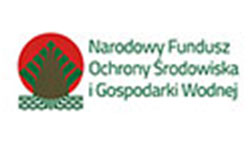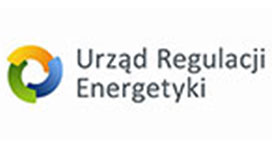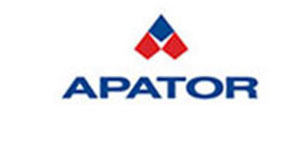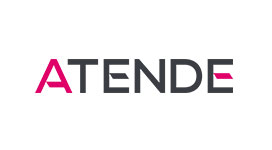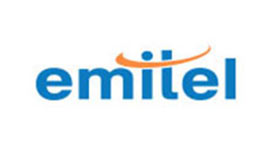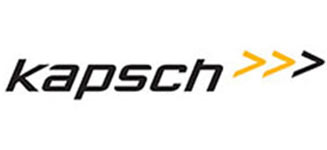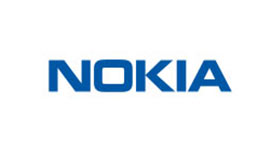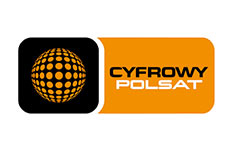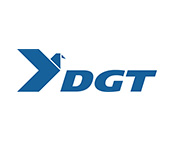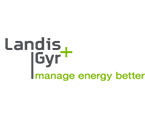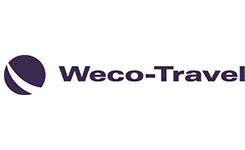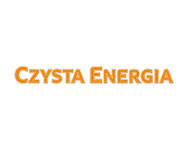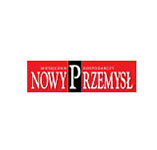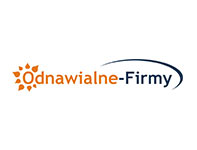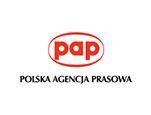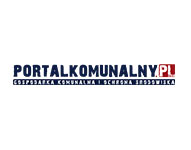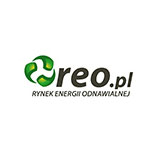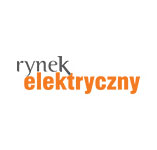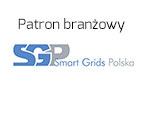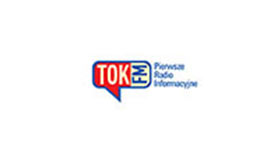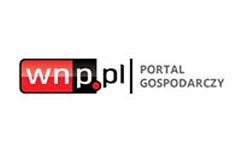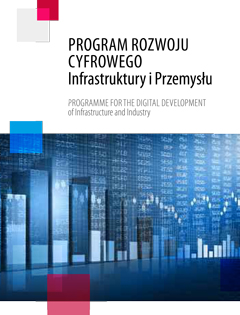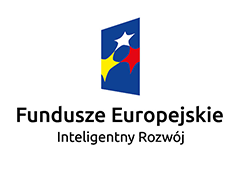The program for the development of innovative economy
The frameworks of the information security system.
On the behalf of the Polish Chamber of Commerce for Electronics and Telecommunications,
we would like to invite all the representatives of the companies operating in the field of electronics,
telecommunications and IT to take part in the 7th TIME Economic Forum, which will be held on March 9 2015 in the Hilton Hotel, Warsaw.
The TIME (Telecommunications, Internet, Media, Electronics) Economic Forum is the most important meeting of the representatives of the ICT industry, providing an opportunity to discuss the most important issues, solving of which will have a significant impact on the pace and directions of the development of products, software and services on a dynamically changing electronic communications market both in Poland and abroad.
The TIME Economic Forum will provide an environment to:
- Summarize the last year's achievements of the ICT industry,
- Present the current stage of the implementation of goals and the assessment of needs set out in development programs and strategies,
- Discuss the key problems to be solved in the first place,
- Exchange experience and take part in consultations,
- Enter into cooperation based on common goals and synergy.
Description of the conference's subject
The goal of this year's TIME Economic Forum is to promote the Program for Digital Development of Infrastructure and Industry (Polish: Program Rozwoju Cyfrowego Infraktuktury i Przemysłu, PRCIP), which completes program works of the Polish Chamber of Commerce for Electronics and Telecommunications (KIGEIT) and can be perceived as the Polish ICT industry's contribution to aggregate the growth of Polish economy by increasing its innovation level.
The conference subjects are strictly related to the fact that the period of implementation of operational programs has already begun. The way in which we use the appropriations for infrastructure investments, available in the years 2014-2020, will decide whether we enter an innovative path of development or we stay stuck in the so-called “middle income trap”. The “limits” of the trap should be set for each developing country individually, since they depend on the level of economic relations and access to the markets of developed countries. Poland has practically unlimited access to the largest economic area covering the most developed countries that are currently its most important trade partners. The middle income trap consists mostly in maintaining a constant difference between the economic level of a given country and the average level of its highly-developed partners. The difference should decrease with the increasing access to the highly-developed markets. EU experience so far shows that even within a single labor, goods and services market, differences between particular countries may persist. This occurs by means of mechanisms similar to those that cause the formation of stable disparities between regions within a single country (eg. Italy). Therefore, we do not share the view of the World Bank that Poland has managed to avoid the middle income trap and we believe that it is necessary to analyse the GDP of the 10 most developed EU countries, with whom Poland has the highest turnover, that is Germany, the United Kingdom, France, Italy, Austria, the Netherlands, Belgium, Denmark, Sweden and Finland. The only way to break this barrier is to narrow the gap between Poland and the aforementioned countries. TIME EC will focus on all the factors that can increase the innovation level of Polish economy, since we believe that only the ability to increase the country's innovativeness will help us to escape the middle income trap.
Over 60% of all innovations come from the ICT area, that is why preparing the conditions for the development of the ICT industry will have crucial influence on the pace of development of the entire country. KIGEiT speaks on behalf of the dominant majority of ICT enterprises in the country, calling for focusing pro-development policy on creating the conditions to accelerate the growth of innovation in this sector. We assume that strict cooperation between the ICT industry, state administration, science organizations and technical infrastructure operators on the implementation of PRCiP will allow us to make better use of resources in the future financial perspective.
This year's TIME EC's program can be perceived as an extension of KIGEiT's efforts to create favorable conditions for the development of innovative ICT industry. The discussion will focus on four thematic areas which are essential for the efficient organization of the processes of economy modernization. Assuming that the pace of digitization and infrastructure development will have a decisive influence on the pace of economic growth in the coming years, we have focused on four of many topics addressed in PRCiP that require continuous discussion and collaboration between industry, science organisations and state administration.
- synergy of innovation and standardization and their influence on initiating economic development through providing support for the process of digitization of the economy.
- Digital integration of infrastructure investments
- Single telecom and digital market
- Program for development of a digital security system for the state, institutions, companies and citizens.
Each of these topics will be the subject of a separate session, consisting of introductory presentations and discussions between experts. Below are descriptions of selected issues that will be discussed during the 7th TIME EC.
Re:I. Creating conditions for the development of innovation requires support for cooperation between science and industry as well as opening of the domestic market for Poland's own innovations. This will allow for the national innovations' development and will increase their share in exports. In the project of the IUSER sectoral program, submitted to the National Center for Research and Development, KIGEiT presented the program of developing industrial specialization. In the IUSER program feasibility study we show that the main requirement for launching new ICT production for domestic and EU market is the creation of new national framework for the standardization of infrastructure, products and services in the scope of selected specialization. According to KIGEiT, standardization is essential to ensure the consistency of investments in production and infrastructure. To obtain the synergy effect, indicated in the title, it is necessary to implement procedures of development of standardization frameworks and making normative decisions, mainly in the form of regulations at the level of the state administration.
Given the current pace of technological development, procedures of such kind should become effective quickly enough to allow the innovative development of infrastructure and production. Currently, part of the framework is being introduced directly into the Polish law through regulations and decisions made by relevant EU bodies. Nevertheless, not all of it. Part of the new regulations is introduced through updating the existing regulations. Along with the Polish accession to the EU, PKN ceased to control the process of development of country-based standards and currently it only translates the standards developed by the European organizations (CEN, CENELEC, ETSI).
The organizational gap in the field of developing laws important due to the nature of the digitization process pertains to processes of transposition of standardization output in the form of regulations, which do not result directly from the applicable laws. The absence of legislative initiatives occurs primarily when:
- Investment processes are launched, without transposition of directives into Polish law, which would delegate legislative powers the appropriate statutory regulation (eg. The problem of data communication networks, being the first step in the construction of the Smart Grids).
- There is a need for regulations of a horizontal nature, that is, the regulations that should result from a number of laws at the same time (eg. the Telecommunications Law, Energy Law, Energy Efficiency Act, the Act on building energy efficiency and the non-existent RES Act),
- There is a need for regulations concerning the standardization frames for ICT hardware and networks, hitherto non-existent in the Polish market,
- There is a need for regulations concerning consumer equipment, which until now was not the network hardware, but with the development of the network of the Internet of Things becomes a network hardware, participating in the implementation of M2M services,
- There is a need for applicable regulations to facilitate and promote innovative approaches to production process and equipment and to build public networks, being developed out of the impact area of the telecommunications law.
During the Forum, we will discuss the legislative action plan that will enable to implement investments in the digitization of technical infrastructure in an integrated way. Directive 2014/61/EU of the European Parliament and of the Council, of 15 May 2014 on measures to reduce the cost of deploying high-speed electronic communications networks, provides that Member States shall adopt and publish the laws, regulations and administrative provisions necessary to comply with the Directive within from January 1, 2016 and shall inform the Commission on this fact and implement the said provision into national law until 1 July 2016. The Digitization Council at the Ministry of Administration and Digitization of Poland should be particularly active in this regard, since the Directive applies to electronic communications employed by all operators of technical infrastructure (I.e. operators of gas, electricity, heat, light, water, road and railway networks, etc.) at all transmission and distribution levels, as well as by the operators of ports, airports and other hubs of a similar nature.
Implementation of the Directive means introducing amendments to at least ten laws and a much larger number of regulations. Given that the Directive is a practical implementation of European policies and that the spending of EU funds must be in accordance with these policies, without the implementation and application of this Directive, we risk being accused of supporting infrastructure investments against the applicable EU policy.
Moreover, the requested legislative actions relating to Directive 2014/61/EU, should take into account the necessity to implement the third energy package (with particular regard to Directive 2009/72/EC of the European Parliament and of the Council of 13 July 2009) and the EU's energy security strategy (COM(2014) 330 final 28.05.2014), supported by a feasibility study (COM(2014) 330 final/2 16.06.2014). These documents describe and implement a policy of application of informatization, as well as electronic and digital technology in power grids.
It is also necessary to assess the proposed changes to the Construction law and other laws, including the so-called “mega-law” (Law of 7 May 2010, on supporting the development of telecommunications networks and services). We assume that the Construction Law is to replace the bill on transmission corridors, which has been proceeded for several years. We should make sure that the proposed changes make it possible to create digital interoperability framework enabling the integration of technical infrastructure through the IT layer. These actions are associated with EU policy aimed at increasing the efficiency of investment and reducing the cost of infrastructure management through an integrated approach to planning in the process of design and implementation of technical infrastructure.
Re: III. Implementation of integrated legal conditions will allow for a full use of economies of scale within the European Economic Area and is a prerequisite for stimulating economic growth of the EU. Moreover, it will make it possible to start to compete with companies operating in large, single markets (such as the US and China). A long-term comparison of the structure of the EU telecommunications market and the structure of the aforementioned markets shows an excessive fragmentation, but the interests of EU operators, as well as legal and business difficulties for years have been inhibiting the consolidation process. The growing importance of infrastructure and electronic communication services for the functioning of the entire economy increases the pressure to accelerate the process of introducing the necessary legislative changes. That is why the new leaders of the European Commission state that the construction of a single telecommunications and digital market shall be one of the main objectives of EU policy. Active participation in this process requires the cooperation of electronic communication network operators and e-enterprises with the State administration.
The discussion should in the first place determine the changes to be implemented in the upcoming years and the way in which they should be implemented. The idea is that the costs associated with the changes, born by telecom operators, should be lower than the expected benefits. The package of proposed changes in telecommunications law in the EU member states assumes:
- simplification of the rules for telecom operators,
- elimination of roaming charges,
- elimination of additional fees for international calls in the European Union, network neutrality,
- introduction of new rights for consumers,
- coordination of the process of radio frequencies allocation.
Another important objective of the single telecommunications market is to create conditions for the construction of a single digital market. We should ponder on how to participate in this process in order to use it to speed up the economic development of Poland.
Re: IV Another issue, strictly related to the majority of tasks associated to the digitization process, is development of external and internal cybersecurity structure. Meeting of this objective requires horizontal actions focused on developing digital security of the whole electronic communication. This means that a national framework for digital security, consistent with the proposals included in the current draft of NIS Directive, should be established as soon as possible.
In this way we can create the conditions to increase value-added by means of synergy. We want to use the processes of change associated with the third infrastructure revolution. Our goal is to build a foundation of technical Smart civilization, which in the coming years will be the main lever of economic development. We wish to introduce new ways to stimulate the economy and increase the growth rate of GDP by fully exploiting the potential of innovation for the development of economy and the society of the twenty-first century.
The Program for Digital Development of Infrastructure and Industry, included in the conference materials, promotes a policy to support local innovation in manufacturing and services. It will allow for full use of the opportunities arising from access to EU markets, currently focus mainly on building a strong ICT industry, based on “smart” class technologies, which will make it possible to build a solid foundation for energy independence.
During the TIME Economic Forum, we will once again postulate to abandon the currently employed economic policy based on well-proven, and therefore outdated technologies. We believe that excessive risk avoidance in key economic decisions inevitably leads to turning away from the innovative growth path, is the main cause of permanent decline in the share of wages in the produced GDP and makes the Polish economy increasingly dependent of fossil fuel importation.




